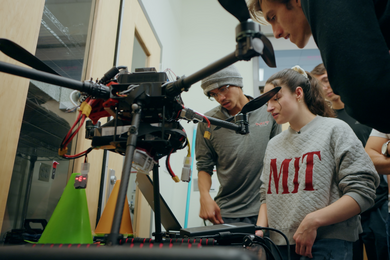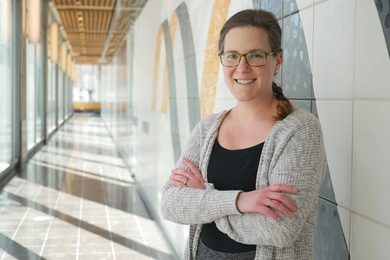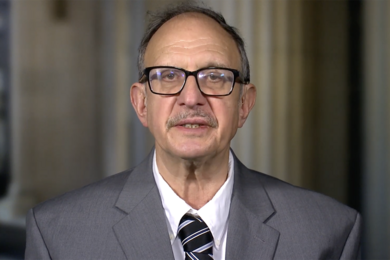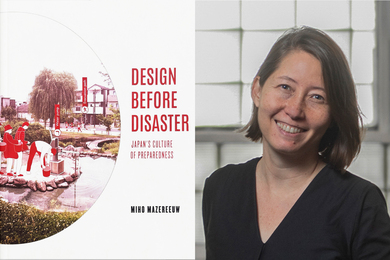CAMBRIDGE, MA --MIT President Charles M. Vest challenged the Class of 1997 today to develop and maintain a strong sense of social responsibility as they pursue careers in a world dominated by three forces -- science and technology, internationalization and changing demographics.
In delivering his charge to the graduates at Commencement exercises on Killian Court, President Vest said:
"Take your education, your talent, and your energy, and build us a nation and a world community that consider knowledge a gift to be shared...a healthy planet a place to be cherished...and human dignity and opportunity fundamental conditions to be enjoyed by all people."
With increased public distrust of authority, ������������������President Vest sees a shifting of social responsibility toward the private sector.
"Increasingly, industry will be called on to address issues of common good that extend beyond the traditional principles of market-driven efficiency and shareholder value," he said. "And you will be charged with seeing this through."
He suggested three primary areas for this to be played out:
- "Creating--and sharing--scientific and technical knowledge for the greater good.
- "Exercising responsibility for our environment.
- "Addressing the problems and opportunities of a changing population--in America and elsewhere."
President Vest cited Institute Professor Mario J. Molina, the 1995 Nobel Prize winner for chemistry, as a role model.
Noting that the Montreal������������������Protocols that set a standard for halting damage to the ozone layer were based on Professor Molina's findings, President Vest said: "As you pursue your careers and undertake your roles as citizens and officials, I urge you to emulate Professor Molina's example--and bring both sound science and effective environmental stewardship to the worlds of industry and policy."
President Vest cited the role colleges and universities have played in opening the system to students from diverse backgrounds.
"We have done so because of our conviction--born of practical experience--that this diversity makes educational sense," he said. "Students learn by encountering new ideas and new������������������people--not by reaffirming what they already know.
"We have done so because of a conviction deeply rooted in the American psyche--a conviction that education is the most important factor in enabling people to earn their place in this world.
"And we have done so because it is our responsibility to educate all those who will contribute to our society's well-being."
Reminding the audience of forces that demand a rollback in the commitment to affirmative action, he urged the new graduates to commit themselves to continued equality of opportunity.
"We still have far to go until we become a nation fully integrated at every level and in every aspect," President Vest said. "Whatever your views on how we reach that goal, we must reach it. We look to you as citizens and leaders to create effective ways to do so."
President Vest prefaced his remarks with a tribute to his predecessor,������������������Paul E. Gray.
"I would like to note that this is a graduation of sorts for one person here on this stage...the person who is presiding over Commencement for the last time today," said President Vest. "I refer, of course, to the Chairman of the MIT Corporation, Paul Edward Gray.
"Paul is completing his service as chairman this July, and after some time off for good behavior, he will return to what he calls the best job at MIT...being a professor. With his lifetime of service to and leadership of the Institute, I consider Paul Gray to be the very personification of MIT...in his integrity, his caring, and his insistence on recognizing and rewarding excellence, wherever it is found.
"As the one who followed in his presidential footsteps, I count no privilege of my office higher than that of having Paul as a counselor, guide, and friend.
"Paul, together with his wife and partner Priscilla, have blessed this place. Now it is our turn to thank them."





